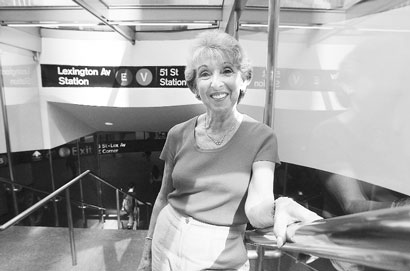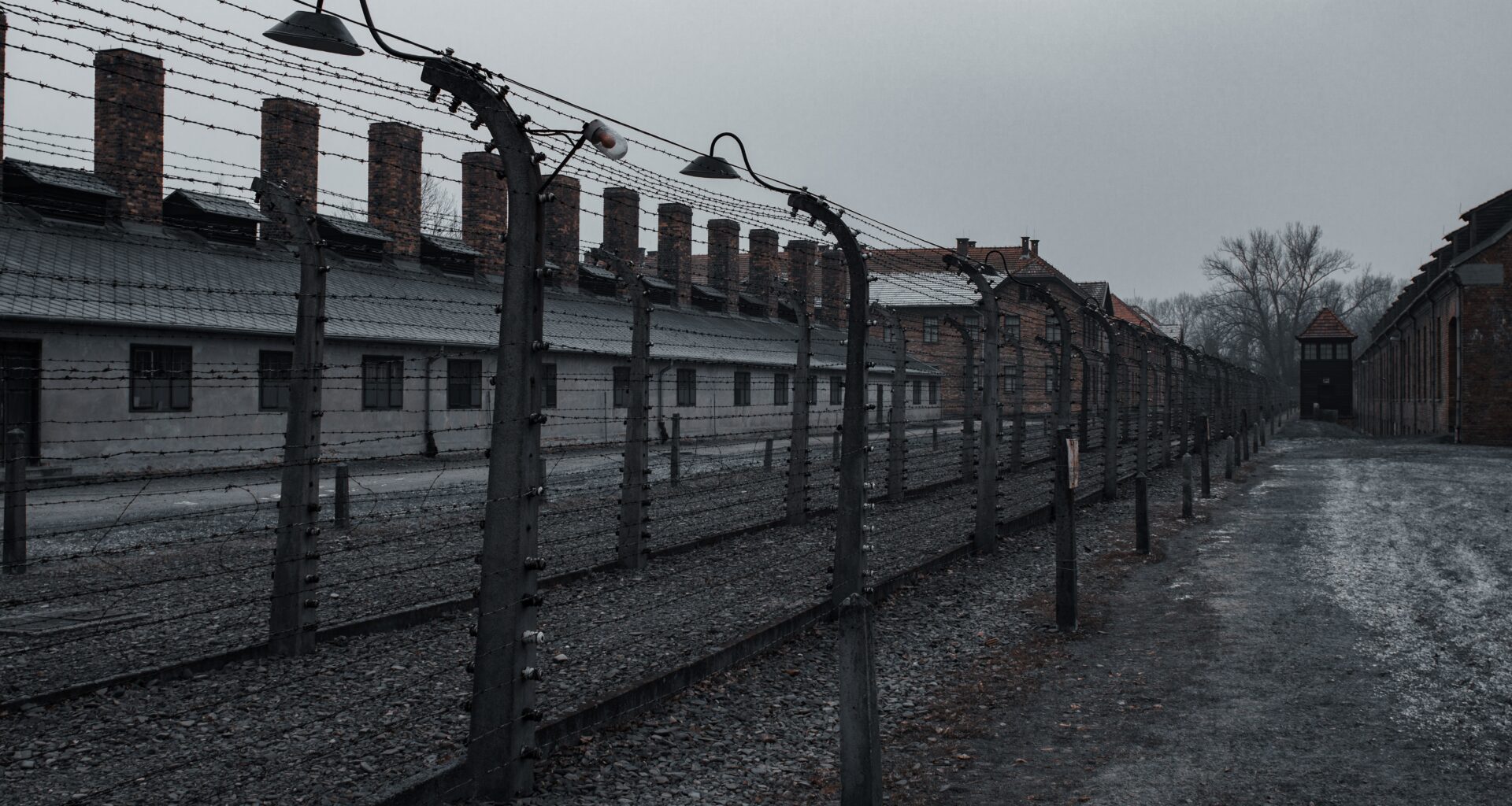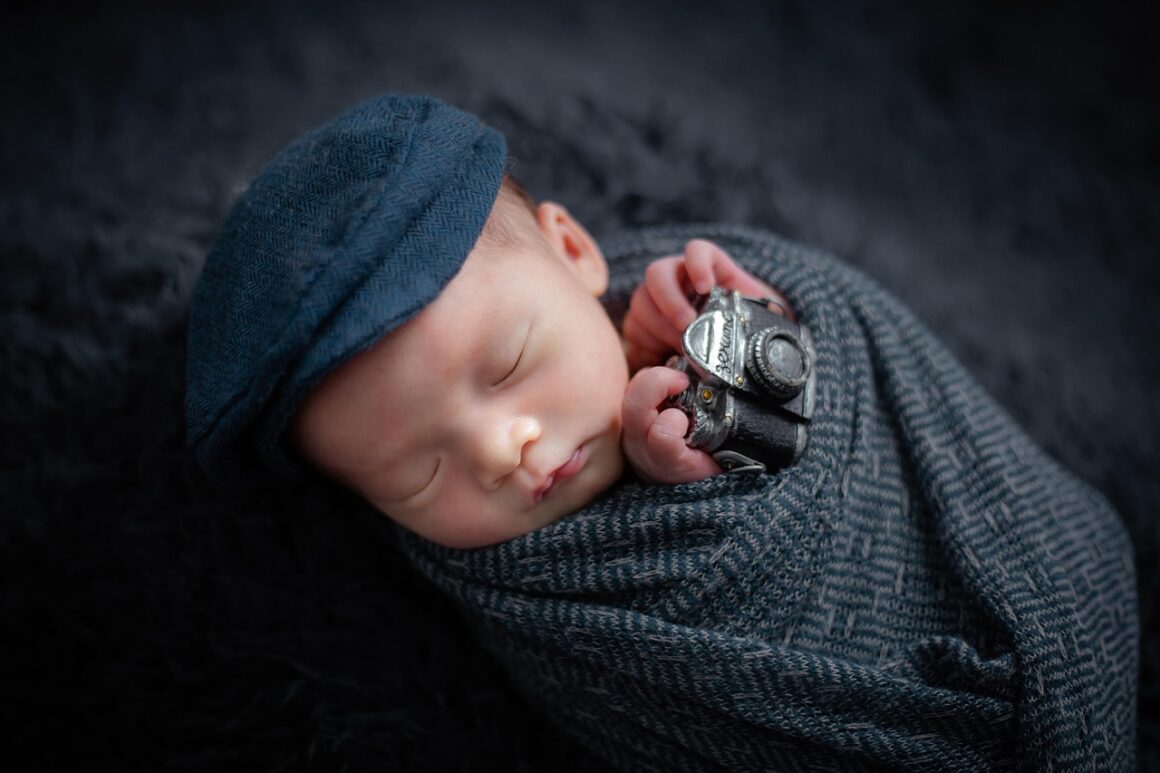Content Warning: This article contains graphic descriptions of violence and antisemitism.
Celia Kener was about seven years old when a Polish woman quietly ushered her into a barn. She was supposed to send the little girl to an orphanage to escape bloodthirsty Nazis, but betraying her own family, she instead lead little Celia toward a haystack. In urgent whispers, the woman comforted the girl by saying a friend awaited her there. Celia was so excited. An only child, she hadn’t been able to play with children since the schoolyard years earlier.
“I’m expecting a friend, a little girl my age,” said Celia, “There appears this skeletal unkempt woman. She whispers words of endearment that sort of strike a bell.” Then, Celia realizes that the person in the haystack is more than a friend. She’s her mother.
Today, Celia Kener, defying expectations, is incredibly lively and hopeful. She has expressive hands and bright eyes that create a deceiving illusion of youth, despite being 86-years-old. She’s well-dressed, with a vivid scarf matching her colorful glasses, which are folded neatly on the table. Celia is a practiced speaker. “You will keep the story alive when we are no longer here to give testimony,” said Kener to a group of wide-eyed students. “You will pursue history and pray that it never ever repeats itself.”

Before the War
Born in Poland, in what is now present-day Lviv, Ukraine, Celia was a girl living a happy, middle-class life with her parents. She spent hours playing with children at a nearby Catholic school. Little Celia was to be a ballerina and wanted to soar over the stage at an upcoming ballet recital, the most anticipated event of her young life. Every day, 3-year-old Celia would dress up in her pink outfit like Shirley Temple, her hair in braids.
The day of the recital had finally arrived, but it was also the day the Germans invaded eastern Poland. In her cozy home, Celia and her mother wept as her father was drafted into the Russian army.
To escape her mother’s mourning, Celia dashed to her best friends playing in the Catholic schoolyard. While the children did not reach four feet tall, they felt like gods walking on the pedestal of internalized antisemitic hate. “Dirty, smelly Jew,” they taunted. Their words, construed by a loathing centuries older than the children, made Celia an outcast. Her young mind couldn’t comprehend a world reflecting the exact opposite of the values her family taught her. Those who were friends just a day before now considered her an enemy.
The taunting children attracted German guards who, like bloodhounds, took Celia from the schoolyard and away from her family, as if she was “an unruly dog.” She was thrown into a truck with vomiting, hysterical children.
However, Celia was strong-willed. She grabbed the pant legs of the guard and said, “Excuse me? Do you have children of your own? How would you feel if your kids are on this bus? What am I guilty of?” He grabbed Celia’s long braids and threw her off the truck, telling her to never return.
The Ghetto
Soon after the invasion, Celia and her mother were herded into a ghetto with their extended family. Her beautiful mother was forced into a labor camp, a hell known as Janowska Concentration Camp. When Celia tried to play with other children, they would collapse during games into “a long sleep”, the Star of David bright on their tattered clothes.
“They lied down,” remembers Celia, “because they stopped living.” Her Shirley Temple locks were shaved off, her identity thrown out with the other mutilated remains of her childhood.
There were repeated Nazi raids of the ghetto, where the predatory soldiers would hunt down Jews. The Nazis were especially brutal to children, who with their naive, sweet minds, were considered useless to the war effort. One and a half million children were killed in the Holocaust.

During raids, families would hide wherever they could to avoid being taken. However, young children and infants were often refused hiding places because they might cry and betray those in hiding. Celia’s own extended family was forced to abandon her during these raids, but this rejection saved her life.
Celia was forced to hide alone. When morning came, Celia heard shouting in the distance. “We won’t see you anymore,” the voices echoed in Kener’s memory. They were the voices of her aunts and cousins, the family who used to talk loudly at the dinner table in Poland. They had been captured by the Nazis. Celia never saw them again.
Celia, with lice crawling on her bare scalp into her ears and mouth, worked to survive. During raids, she brought sugar water to the wailing babies hidden by their mothers among the ruins. The infants were saved by Celia’s kindness and remained hidden through the night. Mothers returning from hiding were incredibly grateful. Celia, a child, rotting in the ghetto alone, saved entire generations and was rewarded with bits of food from the mothers.
Charming guards at her work camp, Celia’s radiant mother learned that the ghetto was to be exterminated and returned to tell her little girl to escape under the prison walls to live with a Polish family. “Neither one of us cried,” Celia said. “But we both knew that we will probably never see each other again.”
In Hiding
Celia spent a year in the warm household of her adopted family. She was a good girl who followed the rules. She never looked out of the curtains and never went to play in the yard. She wanted to become their true Christian daughter.
“As soon as the war is over, I’ll be in church, and I’ll be baptized or christened,” recounted Kener. “They love me and I love them. And now I have a family again.”

The happiness did not last. One morning, Celia went up to the kitchen where the curtains were drawn open for the first time. The small girl saw “two adults and two children publicly hung by their necks.” They were murdered by the Nazis for housing Jewish children.
The loving family could no longer risk their lives to house Celia. She was to be sent to an orphanage in Palestine. Yet the mother of the house wouldn’t follow through because she was worried Celia wouldn’t survive the journey. She hid Celia in a barn behind the house to be fed every three days, a secret from the rest of the family. That’s where Celia met her skeletal mother once more.
The two, reunited, protected each other. They escaped Nazi pitchforks searching for Jews and fought off their ever-present starvation. Eventually, their Polish caretaker delivered long-awaited news: they had been liberated by the Russians.
Soon, Celia’s mother got a letter with familiar handwriting but a foreign name. She discovered that it was from a Russian soldier who had escaped the army and was living under a new identity. The man, arms wide, expected Celia to run to him. But the child couldn’t remember her long-lost father.
Saddened, the man pulled a picture from his pocket. “It’s a copy of myself,” recounted Kener, “dressed for that ballet recital. He had the picture with him in his pocket all these years that we were apart.”
Had the honor of meeting Celia Kener, a Holocaust survivor, today at our bill signing and in addition to having a powerful life story and message, she also has great taste in sneakers!
— Senator Zellnor Y. Myrie 米维 (@zellnor4ny) August 10, 2022
**Rookies take note of the posing expertise and form to maximize visibility of the shoe!** pic.twitter.com/ph7Ak46qQj
After the War
Reunited with her parents, the family decided to start over in America. When Celia reached the shores of her new home, her remaining relatives retaught her about society. They told her how armed men were there to protect her, not hurt her.
She could say and do what she wished.

“If this is true, all that you say,” Celia asked. “Can this be my birthday?”
As part of her rebirth as an American, Celia spent the rest of her life happy and free. She originally “put away” the trauma of the Holocaust and focused on her new beginnings with her family. Celia has three children. She now commemorates her new birthday with toasts to the woman who saved Celia’s family and future at the risk of her own. Celia celebrates with her great-grandchildren who call her “GiGi”.
At her daughter’s urging, Celia realized it was time to speak out. “I am very fearful with what is going on now,” she said. “The war in Ukraine has totally reopened a wound that I thought was completely healed.”
To the ever-growing population that denies her experience, she says, “Do you think that I could make up this story?”
Celia knows it is the youth who must keep the history alive to prevent the Holocaust from repeating itself. “I’m hoping that by sharing my story, I am showing you that regardless of what else, you will need to do your part to make this a better world.”
Feature image via Museum of Jewish Heritage





